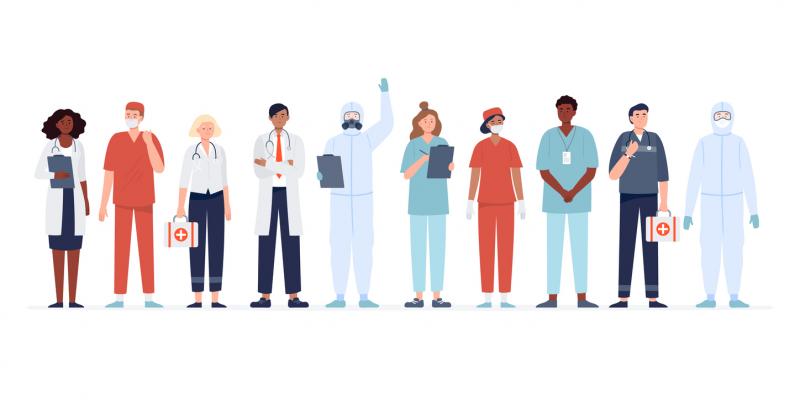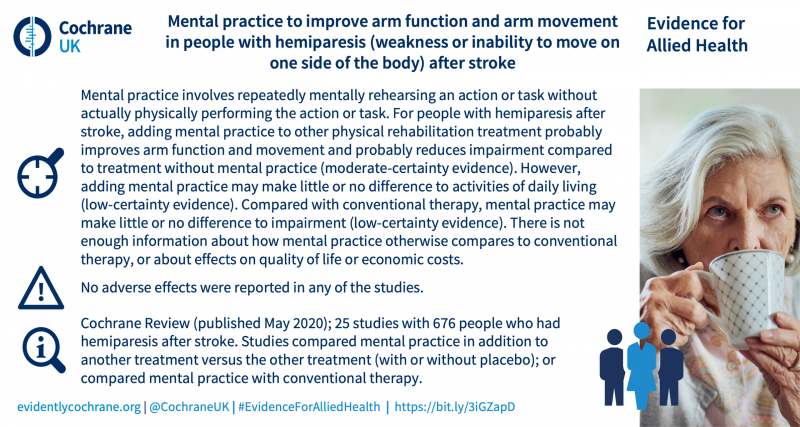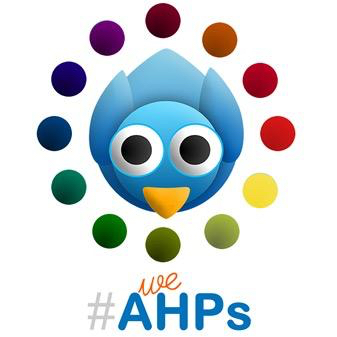
Short, sharable evidence
Rapid change. Information overload. Not enough time. We're sure you could quickly add more obstacles to keeping up to date with research and ensuring your practice is evidence-based best practice. We recognise this and getting evidence to you, where you want it, in quick, easy and sharable formats are drivers for this series. We had a great response from nurses and midwives to their 'evidence series' and were encouraged to see allied health professionals (AHPs) tweeting us to ask for their own. So here it is.
Newsletter
Sign up to get the latest Evidence for Allied Health news in your inbox
Blogs
We publish a blog at least once a week on Evidently Cochrane, on a variety of health topics, and this is a good way to bring you new or topical evidence summaries. We love to be able to include a commentary from someone (a patient and/or practitioner) for whom the evidence is relevant, so do get in touch if you would like to write a blog, or contribute to one.
We also have a series of blogs for allied health professionals. Find all blogs in the #EvidenceForAlliedHealth series here
Quarterly blog posts with a collection of evidence and resources
Every quarter, we will publish a collection of evidence and resources on our blog, Evidently Cochrane. It will flag up and link to recent Cochrane Reviews and related resources from the previous three months, such as Cochrane Clinical Answers, Cochrane Special Collections, and podcasts, blogs, blogshots and anything else we think would be useful, for example we may highlight a recent guideline. We will include news of current opportunities for research involvement or to make your voice heard, and of upcoming events.
Blogshots
These are visual summaries of key information from Cochrane Reviews, such as the one below. These images with brief information have proved really popular since we first started making them last year. Blogshots in this series will be easily identifiable, as they have their own template. Like the blogs, we update our blogshots when the reviews are updated, so you can be confident you are reading about the latest evidence. We’ll share them with a link to the review, blog or other resource, and with the hashtag #EvidenceForAlliedHealth.

The hashtag
Partners

Links:
Evidently Cochrane blog http://www.evidentlycochrane.net
Cochrane UK website https://uk.cochrane.org and blogshot archive: /blogshot-infographic-archive
Twitter https://twitter.com/CochraneUK
Facebook https://www.facebook.com/CochraneUK
Instagram https://www.instagram.com/cochrane_uk/

